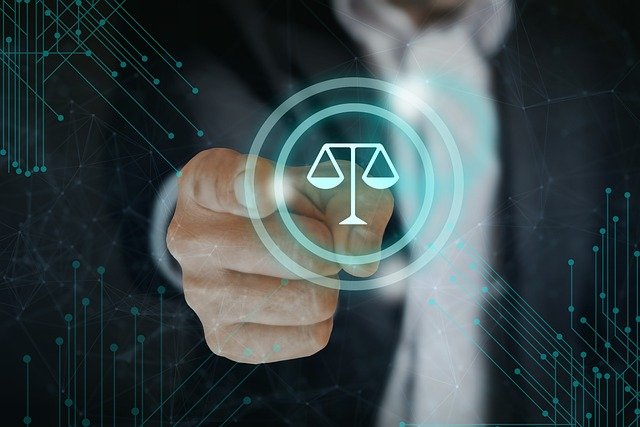Title: Legal Implications of Smart Contracts in the Digital Age
Introduction: Smart contracts, self-executing agreements on blockchain technology, are revolutionizing legal transactions. This article explores their legal status, challenges, and potential impact on traditional contract law, offering insights into how this innovative technology is reshaping the legal landscape.

The concept of smart contracts was first proposed by computer scientist Nick Szabo in 1994, long before the advent of blockchain technology. However, it wasn’t until the development of blockchain platforms like Ethereum that smart contracts became a practical reality. Today, they are being utilized in various industries, from finance and insurance to supply chain management and real estate.
Legal Status and Recognition
The legal status of smart contracts remains a complex and evolving issue. While some jurisdictions have taken steps to recognize and regulate smart contracts, many legal systems are still grappling with how to incorporate this new technology into existing legal frameworks. In the United States, several states have passed legislation to address smart contracts. For instance, Arizona amended its Electronic Transactions Act in 2017 to clarify that smart contracts are legally enforceable.
At the federal level, the discussion around smart contracts often intersects with existing electronic signature laws, such as the Electronic Signatures in Global and National Commerce Act (ESIGN). However, the unique characteristics of smart contracts, such as their self-executing nature and immutability, pose new challenges for lawmakers and regulators.
Challenges in Contract Formation and Interpretation
Smart contracts present several challenges to traditional contract law principles. One of the primary issues is the formation of contracts. In traditional contract law, elements such as offer, acceptance, and consideration are crucial. With smart contracts, these elements may be encoded in computer language, raising questions about how courts should interpret them.
Moreover, the immutable nature of smart contracts on a blockchain can conflict with contract law principles that allow for modification or termination under certain circumstances. This inflexibility could lead to unfair outcomes in some cases, challenging the fundamental principle of equity in contract law.
Another significant challenge lies in the interpretation of smart contracts. Traditional contracts are often subject to interpretation by courts, taking into account the parties’ intentions and the context of the agreement. However, smart contracts execute based on predefined conditions without room for nuanced interpretation, potentially leading to outcomes that may not align with the parties’ true intentions.
Enforceability and Dispute Resolution
The self-executing nature of smart contracts raises important questions about enforceability and dispute resolution. While smart contracts can potentially reduce the need for litigation by automating contract execution, they are not immune to disputes. Issues may arise from coding errors, unforeseen circumstances, or disagreements about the contract’s terms.
Traditional legal systems may struggle to address disputes arising from smart contracts, particularly when dealing with the technical aspects of blockchain technology. This has led to discussions about alternative dispute resolution mechanisms specifically designed for smart contracts, such as online dispute resolution platforms or specialized arbitration processes.
Regulatory Compliance and Consumer Protection
As smart contracts gain adoption, regulatory compliance becomes a critical concern. Smart contracts must adhere to existing laws and regulations, which can be challenging given their automated and decentralized nature. For instance, in the financial sector, smart contracts must comply with anti-money laundering (AML) and know-your-customer (KYC) regulations.
Consumer protection is another crucial aspect. The complexity of smart contracts and blockchain technology may put average consumers at a disadvantage, potentially leading to exploitation or unintended consequences. Regulators and lawmakers are grappling with how to ensure adequate consumer protection in the context of smart contracts without stifling innovation.
Future Outlook and Legal Adaptation
As smart contracts continue to evolve and gain wider adoption, legal systems worldwide will need to adapt. This adaptation may involve developing new legal frameworks specifically tailored to smart contracts or modifying existing laws to accommodate this technology. Legal professionals, including lawyers and judges, will need to develop a deeper understanding of blockchain technology and smart contracts to effectively navigate this new legal landscape.
The integration of smart contracts into legal systems also presents opportunities for innovation in legal services. For example, we may see the emergence of specialized smart contract auditors or the development of standardized smart contract templates for common legal agreements.
In conclusion, smart contracts represent a significant shift in how legal agreements are formed, executed, and enforced. While they offer numerous benefits, including increased efficiency and reduced costs, they also present complex legal challenges. As the technology matures and its adoption grows, the legal community must work towards creating a balanced regulatory environment that fosters innovation while protecting the rights and interests of all parties involved.





